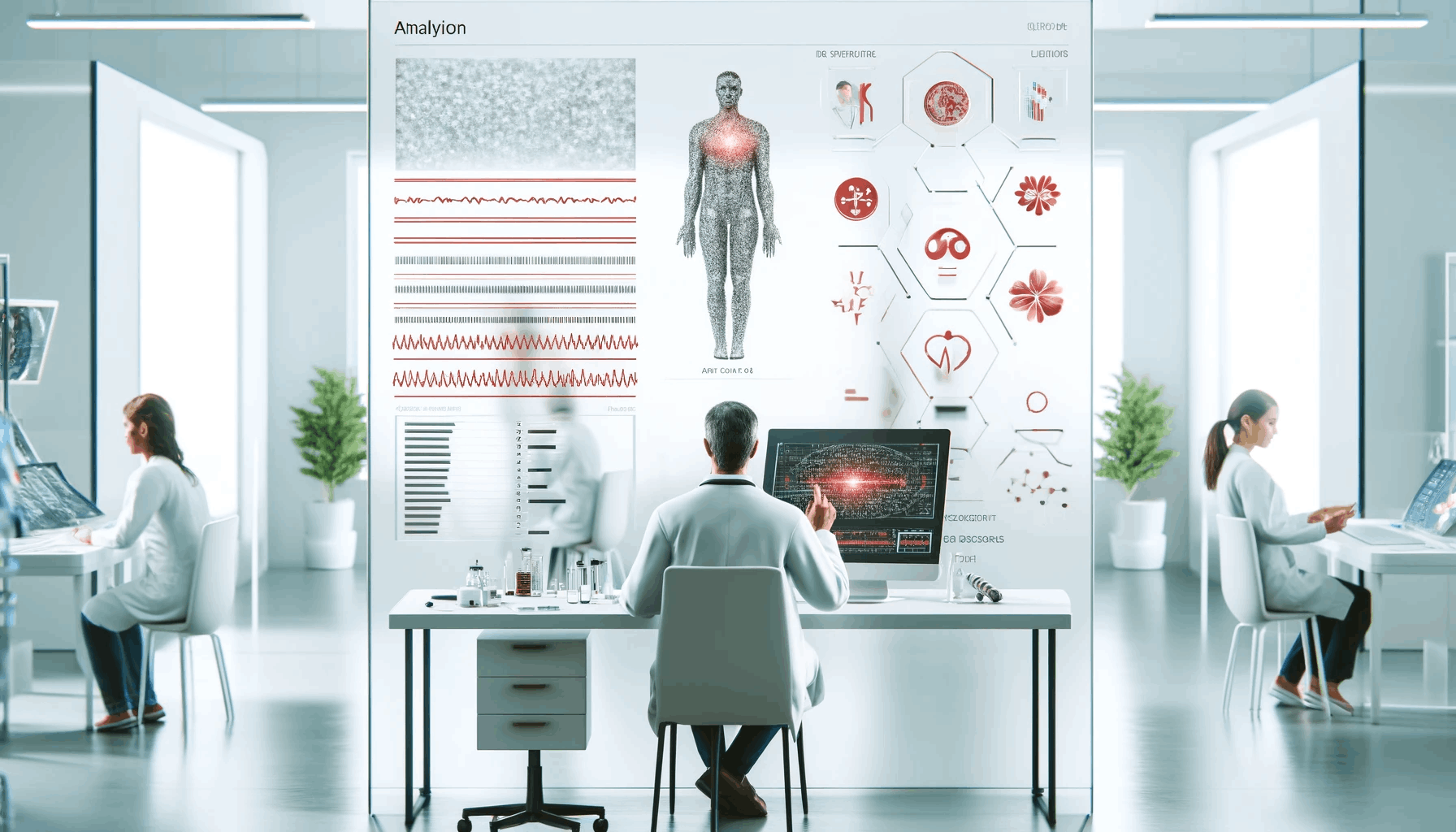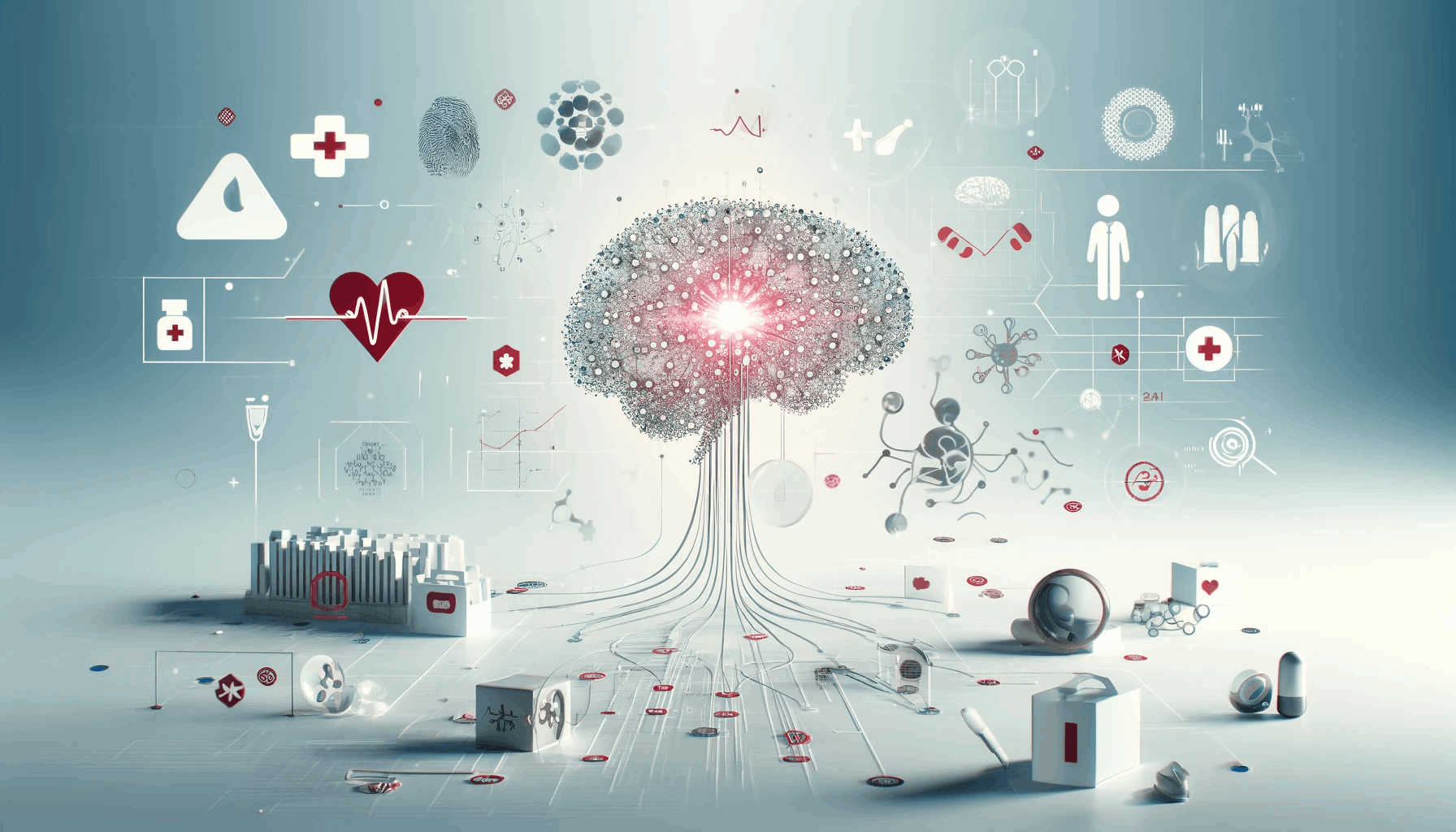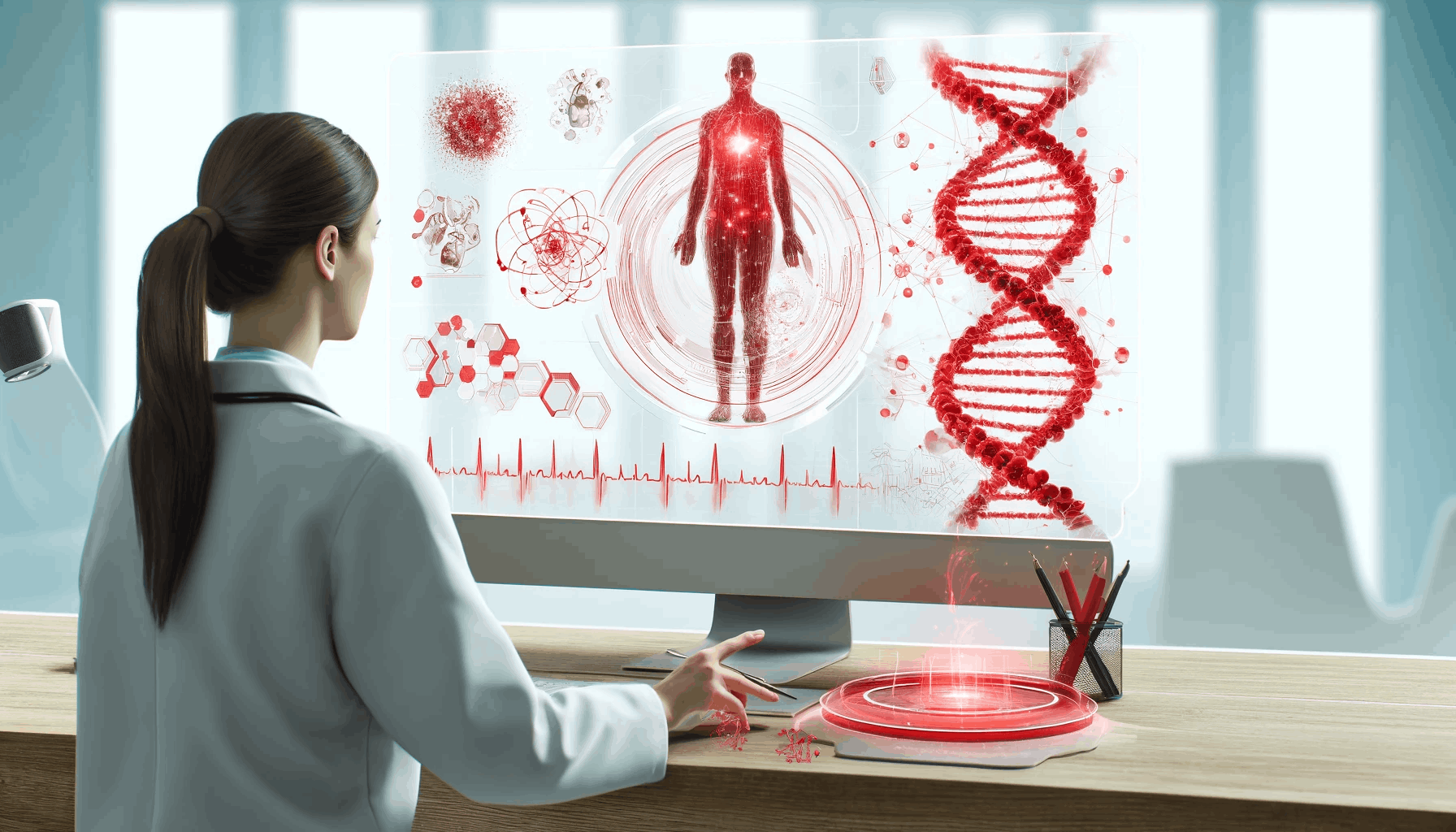Empowering Early Detection: AI’s Breakthrough in Predictive Health Analytics
Predictive health analytics has emerged as a revolutionary approach to detecting diseases at their earliest stages, enabling timely interventions and improved outcomes. This cutting-edge technology leverages artificial intelligence (AI) to process vast amounts of data and identify patterns that human analysts may miss. By harnessing the power of AI, predictive health analytics holds the promise of revolutionizing healthcare as we know it.Understanding Predictive Health Analytics
In order to comprehend the significance of AI in predictive health analytics, it is important to understand the basics of this field. Predictive health analytics involves the use of advanced algorithms to analyze patient data, including medical records, genetic information, lifestyle factors, and environmental aspects. By identifying correlations and trends, AI systems can generate predictive models that assist healthcare professionals in making informed decisions.

Furthermore, predictive health analytics not only aids in disease prevention and early detection but also contributes to personalized medicine. By analyzing vast amounts of data, AI algorithms can tailor treatment plans to individual patients, taking into account their unique genetic makeup, lifestyle choices, and environmental exposures. Doctor Bhavik Patel from Mayo Clinic, Arizona envisions this process like this: “We have an AI model now, that can incidentally say: Hey, you’ve got a lot of coronary arterial calcium, and you are at a high risk for a heart attack or a stroke in 10 years. And you might not have otherwise known that.”
In Mayo Clinic, Arizona, the staff believes that soon every patient will have access to he personalized AI-based preventive medicine. As the amount of data becomes larger, the accuracy of diagnoses will grow.
Interested in learning how AI is trained to be applicable in diagnostics?
Check our article “Balancing Algorithms And Data” for more information and use cases!
The Role of Artificial Intelligence in Health Analytics
Artificial intelligence plays a crucial role in predictive health analytics by enhancing the efficiency and accuracy of data analysis. Through machine learning techniques, AI algorithms can identify complex patterns and associations in patient data, providing insights that can lead to early disease detection and better treatment outcomes. For example, IBM’s AI solution was used to predict the risk of sepsis in premature babies. The algorithm was 75% accurate in protecting the risk of this disease.
Moreover, AI-powered predictive models can also help healthcare providers optimize resource allocation and streamline workflows. This is especially important in the situation of medical staff shortages. Currently, 63% of physicians reporting burnout, and 47% of clinicians said they would leave their jobs in the next three years. By predicting patient admission rates, disease outbreaks, and medication adherence, AI systems enable healthcare organizations to proactively address potential challenges and improve overall operational efficiency, thus removing extra burdens from health workers.
The Evolution of Predictive Health Analytics
Predictive health analytics has evolved significantly over the years, driven by advancements in AI technologies. Initially, these analytics focused on developing predictive models for specific diseases, such as cancer or cardiovascular conditions. However, recent advancements have broadened the scope of predictive health analytics, allowing for more comprehensive and personalized predictions.
As predictive health analytics continues to evolve, researchers are exploring new frontiers such as predictive genomics, which involves predicting an individual’s risk of developing certain diseases based on their genetic profile. By integrating genomic data with traditional health data, AI systems can provide more accurate and personalized risk assessments, paving the way for precision medicine and targeted interventions.
The Intersection of AI and Predictive Health
The integration of AI and predictive health analytics has opened up new possibilities in healthcare. By leveraging AI’s capabilities, predictive health analytics can be enhanced in various ways.

AI has revolutionized the field of predictive health analytics by enabling the identification of subtle patterns and anomalies in vast datasets. This advanced capability allows healthcare professionals to detect early signs of diseases, sometimes even before symptoms manifest in patients. By applying AI to predictive health analytics, medical practitioners can closely monitor patient health and intervene at the earliest stages of disease progression, ultimately improving patient outcomes and quality of care.
How AI Enhances Predictive Health Analytics
AI algorithms excel at identifying subtle patterns and anomalies in vast datasets. This ability allows predictive health analytics systems to detect early signs of diseases, even before symptoms manifest. By applying AI to predictive health analytics, healthcare professionals can monitor patient health more closely and intervene at the earliest stages of disease progression.
Moreover, AI’s predictive capabilities extend beyond individual patient care. By analyzing population health data, AI can help identify trends and risk factors at a larger scale, enabling public health officials to implement targeted interventions and preventive measures to improve community health outcomes.
Challenges and Solutions in AI-Powered Predictive Health
Despite its potential, AI-powered predictive health analytics also faces certain challenges. One of the primary concerns is the privacy and security of patient data. In order to overcome this, robust security measures must be implemented to safeguard sensitive information. Additionally, ethical considerations surrounding the use of AI in healthcare must be addressed to ensure responsible and unbiased decision-making.
Another challenge lies in the integration of AI technologies into existing healthcare systems. Healthcare organizations need to invest in infrastructure and training to effectively implement AI-powered predictive health analytics. This includes ensuring interoperability with electronic health records, integrating AI insights into clinical workflows, and providing adequate training to healthcare professionals to effectively utilize AI-driven tools.
The Impact of AI on Early Disease Detection
One of the most significant advancements facilitated by AI in predictive health analytics is early disease detection. This has the potential to revolutionize healthcare outcomes, particularly in the field of cancer and cardiovascular diseases.
AI’s ability to analyze vast amounts of data quickly and accurately has transformed the landscape of early disease detection. By incorporating machine learning algorithms, AI systems can sift through complex medical information to identify subtle patterns and markers that may indicate the presence of a disease. This level of precision and efficiency enables healthcare providers to detect illnesses at their nascent stages, when treatment is most effective.
AI in Cancer Detection: A Paradigm Shift
Traditionally, cancer diagnosis relied heavily on manual interpretation of imaging tests and biopsies. However, AI technologies have proven to be highly effective in analyzing medical images and identifying potential cancerous lesions with remarkable accuracy. By leveraging AI algorithms, oncologists can detect cancer at an early stage, significantly improving survival rates.
Moreover, AI systems are continuously learning and evolving, allowing them to adapt to new information and refine their diagnostic capabilities over time. This iterative process enhances the accuracy and reliability of cancer detection, offering patients a better chance at successful treatment outcomes.
AI’s Role in Predicting Cardiovascular Diseases
Cardiovascular diseases are a leading cause of morbidity and mortality worldwide. AI-powered predictive health analytics can help identify individuals at high risk for cardiovascular diseases by analyzing various risk factors, such as blood pressure, cholesterol levels, and lifestyle choices. Early detection of cardiovascular disease risk allows for tailored interventions and preventive measures.
Furthermore, AI systems can provide personalized risk assessments based on an individual’s unique health profile, enabling healthcare professionals to offer targeted interventions that address specific risk factors. This proactive approach to cardiovascular health management has the potential to significantly reduce the incidence of heart-related complications and improve overall patient well-being.
Future Perspectives: AI in Predictive Health Analytics
As AI continues to evolve, its potential in predictive health analytics becomes even more promising.

With the rapid advancement of artificial intelligence (AI) technology, the field of predictive health analytics is poised for significant growth and innovation. AI algorithms have the capability to sift through vast amounts of data, including patient records, genetic information, and clinical studies, to identify patterns and make predictions that can revolutionize healthcare practices.
The Potential of AI in Personalized Medicine
Personalized medicine aims to provide tailored treatments based on an individual’s unique genetic and clinical profile. AI holds immense potential in this area, as it can analyze vast amounts of genomic data and identify specific genetic biomarkers associated with diseases. This information can guide treatment decisions and improve patient outcomes.
Furthermore, AI can also assist in the development of personalized treatment plans by considering factors such as lifestyle choices, environmental influences, and response to previous therapies. By leveraging AI in personalized medicine, healthcare providers can deliver more precise and effective interventions, leading to better patient outcomes and quality of life.
Ethical Considerations in AI-Powered Predictive Health Analytics
The integration of AI in healthcare raises ethical concerns that must be addressed to ensure responsible and unbiased use of AI-powered predictive health analytics. These considerations include transparency, accountability, and avoiding algorithmic biases. By implementing ethical frameworks, AI can be used to benefit patients and healthcare systems without compromising privacy and fairness.
Moreover, ethical considerations extend to the responsible collection and utilization of patient data, ensuring that data privacy and security are prioritized in AI-powered predictive health analytics. Striking a balance between innovation and ethical standards is crucial to harnessing AI’s full potential in healthcare while upholding patient trust and confidentiality.
Interested in creating an AI-based medical solution?
Contact eNest for a free consultation and advice. You will discuss your business case in a one-on-one talk with our specialist and receive a clear vision of the project cost and timeline. Book your free call now!
Have a question?
Speak to Data Scientist
 Jagdeep Chawla
Jagdeep ChawlaMS in Data Science
NorthWestern Univeristy, Illinois
MS in Data Science
NorthWestern Univeristy, Illinois




